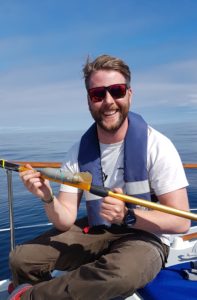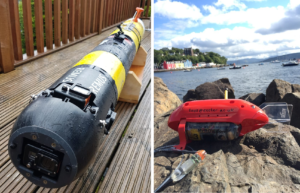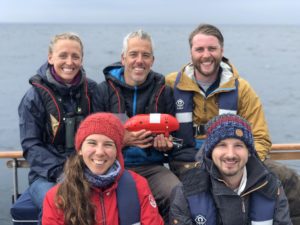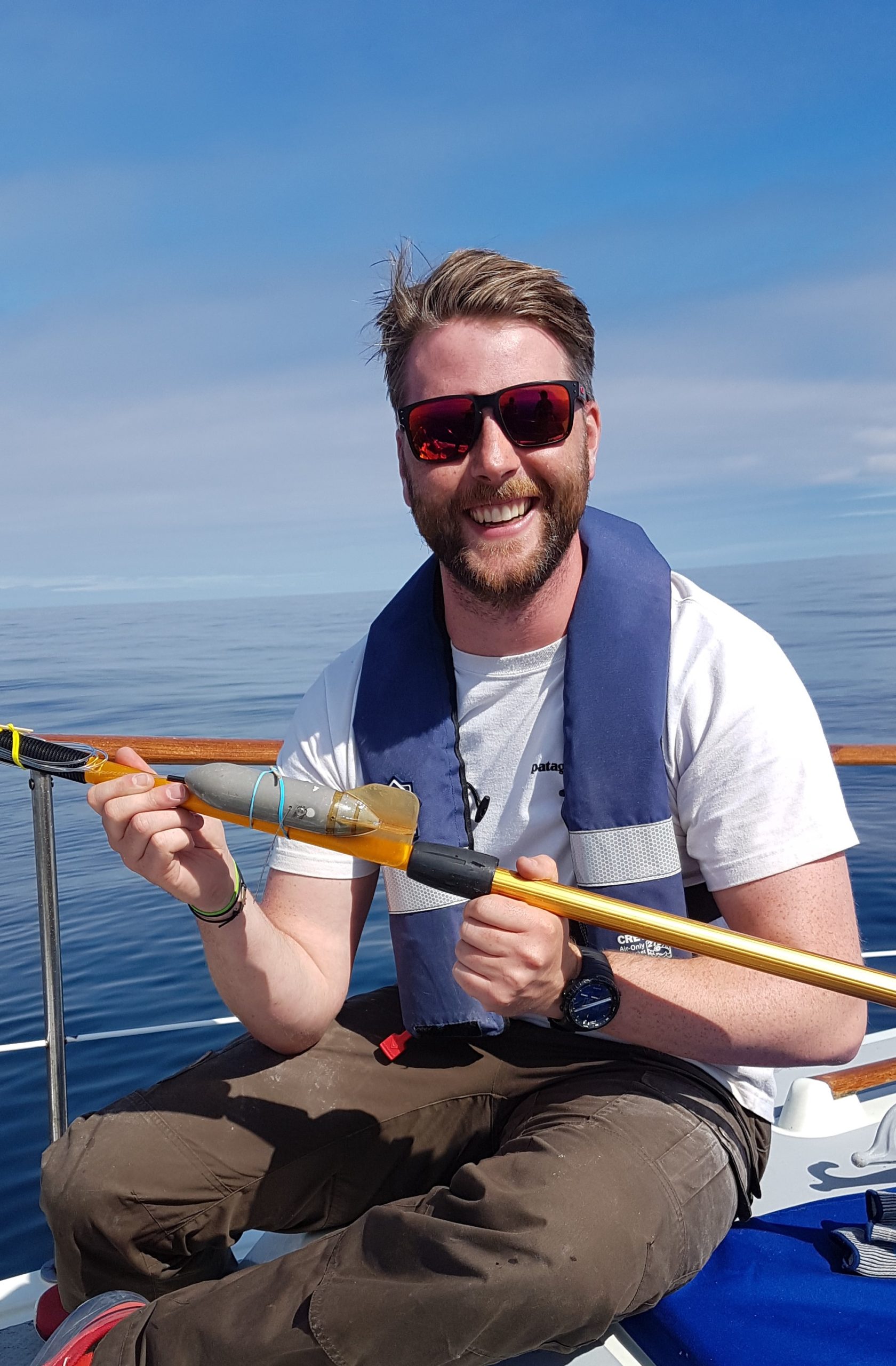Our world-leading marine research underpins a wide range of undergraduate and postgraduate programmes: Research-led teaching | Exeter Marine | University of Exeter. In this #MScGraduateInFocus series we are looking back on some of our MSc graduates who have excelled in marine conservation around the world since studying with us.
Today we meet Owen Exeter, MSc Conservation Science and Policy graduate (2017) and now working as a Graduate Research Assistant at the University of Exeter!

Hi Owen! We’re glad that you are still working with us at the University of Exeter, why don’t you tell us a bit what you’re up to now?
I’m now a Graduate research assistant for Dr Rachel Turner and Dr Matthew Witt at the University of Exeter. I really love the possibilities in research. My areas of interest are constantly evolving and there is a lot of variety in the world of marine vertebrates. I spend weekends off Falmouth helping tag tuna, weeks in Scotland with basking sharks then periods working with big data and making maps. It’s a fantastic mix and I am always looking forward to new experiences.
Shortly after graduating I was contacted by Dr Matthew Witt and asked if I wanted to on one of his new projects the ‘English Marine Spatial Planning and the Ocean Health Index’. I knew Matt from various projects during my MSc and we had stayed in contact after graduation.
I was incredibly fortunate to spend a week working with Matt and Dr Lucy Hawkes in Scotland deploying high resolution ‘Daily Diary’ tags to basking sharks. It was literally my last couple of weeks when Matt asked if I could come and work as a field assistant. It was an incredible experience and a chance to contribute towards groundbreaking research into the fine-scale movements of these iconic sharks. My research thesis with Matt had been desk based as I had wanted to focus applying and refining the GIS skills I had learnt during the MSc. It might not happen to everyone, but I think it shows that if you work hard, even if you don’t have many field opportunities, you learn more vocational skills and supervisors will recognize your potential. They might just ask you to be more involved in the research group activities if possible.
We’re glad you had such great opportunities! What did you enjoy most about studying in Penryn?
It took me a little while to work out what career I wanted in life. I studied politics as an undergraduate and years abroad working in hospitality. But traveling exposed me to some incredible places and marine life, so I decided to take a few chances and enroll in the MSc and I am so glad I did!
There aren’t many better places in the UK to study marine conservation science. It has a fantastic mix of world leading researchers and opportunities to volunteer for external conservation organizations. I was able to spend free time surveying for the Cornwall Seal Group which is a fantastic charity. I also helped at the Seal Sanctuary and got further GIS experience at the Cornish Wildlife Trust.
The University is constantly growing and there are more and more opportunities to be involved in cutting-edge research. The marine vertebrate team is especially strong and there are so many incredible researchers to learn from.
I love living in Cornwall. The Penryn Campus is located with access to beautiful beaches and incredible marine life. Just last week I took a trip not far off offshore in Falmouth bay freediving with blue sharks. On the way out we saw bluefin tuna, minke whales and hundreds of dolphins. If you love marine life it really is a dream location.

How did the MSc help you in your career, and do you have any advice for students looking to pursue a similar career?
Field work with basking sharks was incredible, but the analytical skills taught in the MSc are what have really prepared me for my current role. If you have an idea of what you want to do after your studies start looking at positions early. You don’t need to apply for anything, but you can get an idea of the skills you will need for the future. Also make use of the career zone on campus. They are so helpful and transformed my CV when I started applications.
Have an open mind. My interests have evolved since I began my MSc. You might discover new field of research that interest you. Fisheries also now fascinate me and I have definitely gone from being completely obsessed only with sharks to being obsessed with a huge variety of commercial and conservation concern fish (but mostly sharks).
Also get involved in as many opportunities as possible. Studying gives you a great platform and skill set. But by showing enthusiasm and interest you meet new people and get new ideas. I am only where I am now by reaching out to researchers and asking to help out in my spare time. It gave me an opportunity to learn some basic GIS skills and each project led to more responsibility, ultimately leading to a job.

Any advice for anyone thinking of applying to the University of Exeter?
Just go for it! I wasn’t sure I had enough experience for a science-based MSc but there is plenty of support if you are willing to put the hard work in. I didn’t have a huge scientific background and was worried I would struggle to keep up. The reality was there are so many varied opportunities and I found working with geospatial data just made sense.
Thanks Owen!
If you want to find out more about any of our suite of #ExeterMarine Masters and Undergraduate courses use the links below!
- NEW: MSc in Marine Vertebrate Ecology and Conservation
- MSc in Conservation and Biodiversity
- MSc in Conservation Science and Policy
- MSc in Evolutionary and Behavioural Ecology
- MSc in Sustainable Development
- MSc in Environment and Human Health
- MSc in Renewable Energy Engineering
- BSc Marine Biology
- BSc Zoology
- BSc Environmental Science
- BSc Conservation Biology and Ecology
- BSc Evolutionary Biology
- BSc Animal Behaviour
- BEng Renewable Energy Engineering

